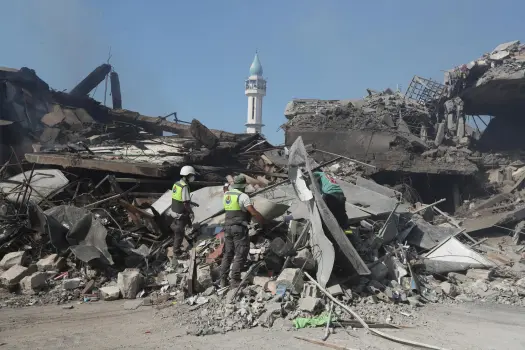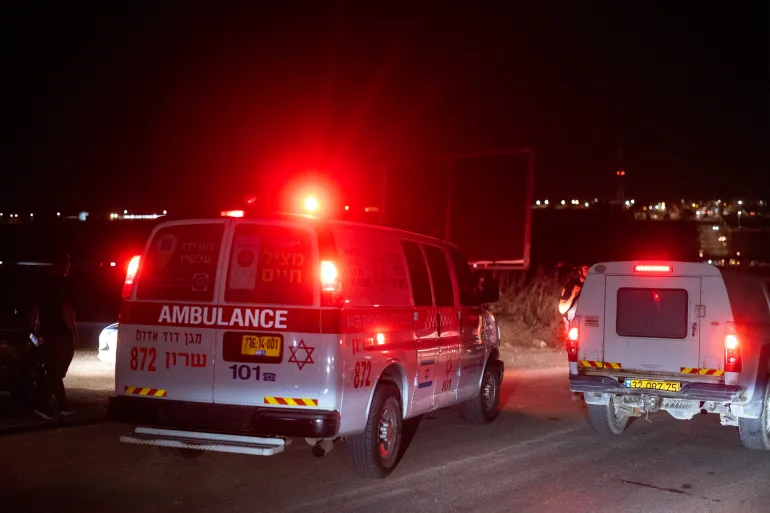A deadly drone attack by Hezbollah on an Israeli army base near Binyamina in central Israel killed four soldiers and severely wounded seven others on Sunday, marking the deadliest strike by the militant group since Israel’s ground invasion of Lebanon began two weeks ago. The attack, which injured a total of 61 people according to Israel’s national rescue service, represents a significant escalation in the ongoing conflict.

Hezbollah claimed the attack was retaliation for Israeli strikes on Beirut last Thursday that killed 22 people. The Lebanon-based group said it targeted Israel’s elite Golani brigade, employing a strategy of launching multiple missiles to overwhelm Israeli air defense systems before deploying “squadrons” of drones.
In response to the attack and growing tensions, the United States announced it would send a new air-defense system to Israel, along with troops to operate it. An Israeli army spokesperson declined to provide a timeline for the deployment.
The conflict has expanded beyond the initial Israel-Hamas war in Gaza, with Israel now engaged against both Hamas and Hezbollah, Iran-backed militant groups. Expectations of an Israeli retaliation against Iran for a recent missile attack have further heightened regional tensions.

Amidst the escalating violence, Israeli Prime Minister Benjamin Netanyahu criticized the United Nations Interim Force in Lebanon (UNIFIL), accusing the peacekeepers of “providing a human shield” to Hezbollah. This statement came after UNIFIL reported that Israeli tanks had forcibly entered one of their positions, destroying the main gate, and later fired smoke rounds near peacekeepers, causing skin irritation.
Netanyahu called for UNIFIL to heed Israel’s warnings to evacuate, stating, “We regret the injury to the UNIFIL soldiers, and we are doing everything in our power to prevent this injury. But the simple and obvious way to ensure this is simply to get them out of the danger zone.”

The Israeli military defended its actions, claiming that a tank trying to evacuate wounded soldiers had backed into a UN post while under fire, and that smoke screens were used for cover. Lt. Col. Nadav Shoshani asserted that Israel maintains constant contact with UNIFIL and that any harm to UN forces would be investigated at “the highest level.”
As the conflict intensifies, international criticism of Israel’s actions towards UN peacekeepers has grown. Five peacekeepers have been wounded in attacks on their positions since the start of the ground operation in Lebanon, with most blamed on Israeli forces.
The situation remains volatile, with the potential for further escalation as Israel continues its operations in both Gaza and Lebanon, while also facing the prospect of direct confrontation with Iran.



